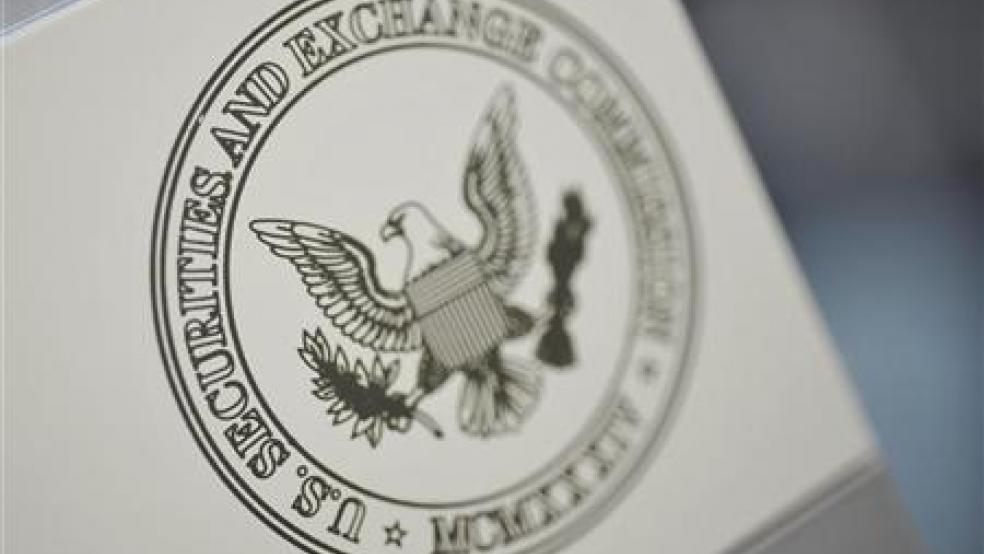WASHINGTON (Reuters) - U.S. regulators are investigating major U.S. movie studios' dealings with China as the entertainment companies try to get a greater foothold in one of the fastest-growing movie markets in the world.
The Securities and Exchange Commission has sent letters of inquiry to at least five movie studios in the past two months, including News Corp's 20th Century Fox, Disney, and DreamWorks Animation, a person familiar with the matter said.
The letters ask for information about potential inappropriate payments and how the companies dealt with certain government officials in China, said the person, who was not authorized to speak publicly about the letters.
The Chinese film market is seen as one of the largest potential markets for Hollywood, but it has also historically been tightly controlled by the state-owned China Film Group.
China Film Group had limited foreign films to 20 per year, but it eased some control in February of this year, after China's leader-in-waiting Xi Jinping, who is known to admire some American movies, spent a week in Washington.
Vice President Joe Biden and U.S. Trade Representative Ron Kirk hailed the deal, which allows 14 premium format films, such as IMAX or 3D, to be exempt from the quota, as will the 2D versions of the films.
Also in February, DreamWorks Animation announced a landmark deal of its own in which it will build a production studio in Shanghai with some of China's biggest media companies.
DreamWorks Animation found success in China last year with "Kung Fu Panda 2," which became the highest-grossing animated movie in China with ticket sales of about $100 million.
China Film Group did not respond to repeated requests for comment. Representatives of DreamWorks, Disney, and News Corp declined to comment.
A spokesman for the SEC declined to comment.
The inquiry reflects stepped-up scrutiny from the SEC and Justice Department into potential violations of the Foreign Corrupt Practices Act, a 1970s law that bars U.S. companies and individuals from paying bribes to officials of foreign governments.
U.S. authorities have active bribery investigations into high-profile companies including Avon Products and Hewlett-Packard Co. News Corp is also separately under investigation for alleged bribery at its UK media properties.
Wal-Mart Stores, the world's largest retailer, has disclosed to the SEC and DOJ an internal investigation, and lost $10 billion of its market value on Monday after the New York Times reported on allegations of widespread bribery in Mexico. All of the companies have previously said they are cooperating with federal authorities and investigating the allegations.
EASING THE MARKET OPEN
While U.S. box office sales dropped some 5 percent to around $10 billion last year, Chinese box office revenue grew roughly 35 percent to $2.1 billion.
Much of the revenue came from 3D titles, a rapidly growing sector of the film industry, making China an even more desirable market.
U.S. movie studios have long been frustrated with China's tight restrictions on foreign films, which they say helps fuel demand for pirated DVDs that are widely available in China.
But recently the dynamics within the Chinese market have shifted.
China's booming middle class is increasingly willing to pay tickets prices for a cinema experience, forgoing cheap pirated DVDs and free internet downloads.
Also, Xi's visit to Washington and then Los Angeles in February was quickly followed by the deal that loosened China's annual quota on foreign film imports.
That pact also strengthens opportunities to distribute films in China through private enterprises rather than the state film monopoly.
Hollywood has struck a flurry of deals since the deal was reached.
Besides DreamWorks Animation's plan to build a production studio in Shanghai, Disney announced last week that the next "Iron Man" film will be co-produced in China under a joint agreement between Disney, its Marvel Studios arm and China's DMG Entertainment.
Disney had also announced earlier this month that it would work with China's Ministry of Culture and Tencent Holdings to promote the animation industry in China.
SWEEPS
U.S. anti-corruption regulators have specifically focused their interest in countries like China, where much of the economy is state-run.
Since 2002, the United States has brought around four dozen FCPA enforcement actions related to corruption in China, second only to those involving Nigeria.
The SEC has also initiated several so-called industry sweeps for potential foreign bribery across an industry. Last year, for example, it sent letters to a handful of banks and private equity funds and said it was investigating possible FCPA issues in their dealings with sovereign wealth funds.
"Typically those (sweeps) arise where the agencies, most commonly the SEC, see a situation in a particular company that it believes for some reason may reflect a broader practice or pattern in the industry," said Homer Moyer, a partner with Miller & Chevalier who has worked on FCPA issues for decades.
But U.S. regulators have brought few cases in the entertainment industry. In one of the few actions targeting the movie industry, the Justice Department in 2008 charged Gerald and Patricia Green, a husband and wife pair of film producers, of bribing government officials in Thailand in order to run a film festival there.
The Greens were convicted in 2009 and served six months in jail.
(Reporting By Aruna Viswanatha with additional reporting by Lisa Richwine in Los Angeles, and Ben Blanchard and Michael Martina in Beijing; Editing by Karey Wutkowski and Tim Dobbyn)


